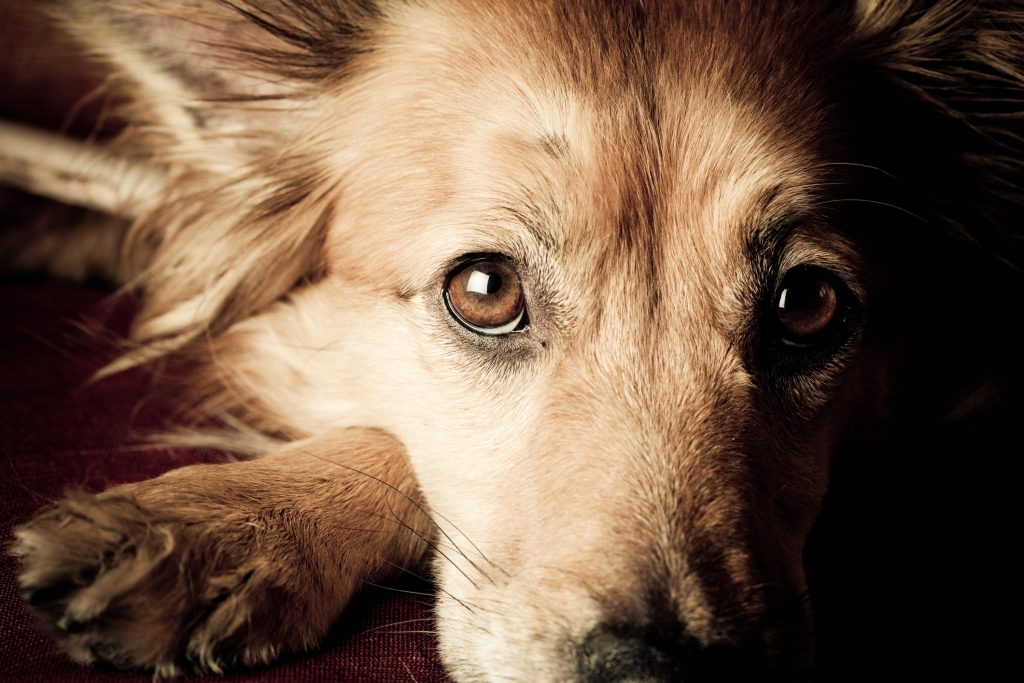 The loss of a loved one is arguably one of the most difficult parts of the human experience, and for many pets it can be just as earth-shattering. Unlike humans, who have words to express our complex emotions, pets aren’t able to share with us how they are feeling or reacting, and it can be difficult to know how to help a grieving pet.
The loss of a loved one is arguably one of the most difficult parts of the human experience, and for many pets it can be just as earth-shattering. Unlike humans, who have words to express our complex emotions, pets aren’t able to share with us how they are feeling or reacting, and it can be difficult to know how to help a grieving pet.
It’s unfortunate that we can’t sit down and “talk it out” with our pets during times of sadness and turmoil, but with patience, tenderness, and understanding, it’s possible to work through pet grief, and to help your pet enjoy life once more.
Do Pets Grieve?
Although there is still much to be learned about animal emotions, it is widely recognized that many animals do experience grief. The extent of the grieving process varies based on individual animals and their relationships to the deceased.
For the most part, our pets are very attentive to our moods and to the moods of other animals in the household. It’s common for the deep grieving that accompanies the loss of a human or animal family member to affect the family pet as well, whether he or she is personally grieving or merely reacting to the emotions expressed by other members of the household.
Signs of Pet Grief
A 1996 study performed by the ASPCA found that more than half of dogs and cats experienced at least four behavioral changes after losing an animal companion.
Signs a pet is grieving include:
- Loss of appetite
- Change in sleep patterns
- Restlessness
- Vocalizations (barking, howling, meowing)
- Searching for deceased owner or companion
- Scratching or clawing at doors and windows
- Destructive behavior (digging, chewing, house soiling)
- Clinginess
- Sullenness
It’s important to point out that these behaviors can also indicate illness in pets. If your pet is experiencing any behavior changes, please give us a call so we can rule out any underlying health problems that may be contributing.
Working Through Pet Grief
When an animal companion or pet owner dies, it’s important for the remaining loved ones to consider the impact this may have on the pet or pets left behind. You can help guide your pet back to a sense of normalcy in the following ways:
- Maintain your pet’s normal routine (mealtimes, walks, playtimes, etc.) as much as possible.
- Commit to giving your pet extra attention and snuggles during this difficult time.
- Help your pet take his or her mind off of grief with walks, games, training, grooming, or visits to new places.
- Understand that grief is a process that affects each animal differently; some pets may seem to grieve deeply, while others show no obvious emotion. Allow the grieving process to unfold in your pet and realize that it may take time and patience to see it through.
If the deceased lived alone with a pet, plans should be made for the pet to be adopted by a close family member whenever possible. If adoption is impossible, find and work with a rescue organization that understands pet grief and is equipped to handle such circumstances.
We Are Here for You
Watching a pet grieve is heartbreaking, and can be an extremely stressful experience for everyone involved. Understand that your loving support, coupled with the passage of time, can help your pet enjoy life once again. We encourage you to reach out to the staff at Billings Animal Family Hospital with any questions and concerns you may have.


